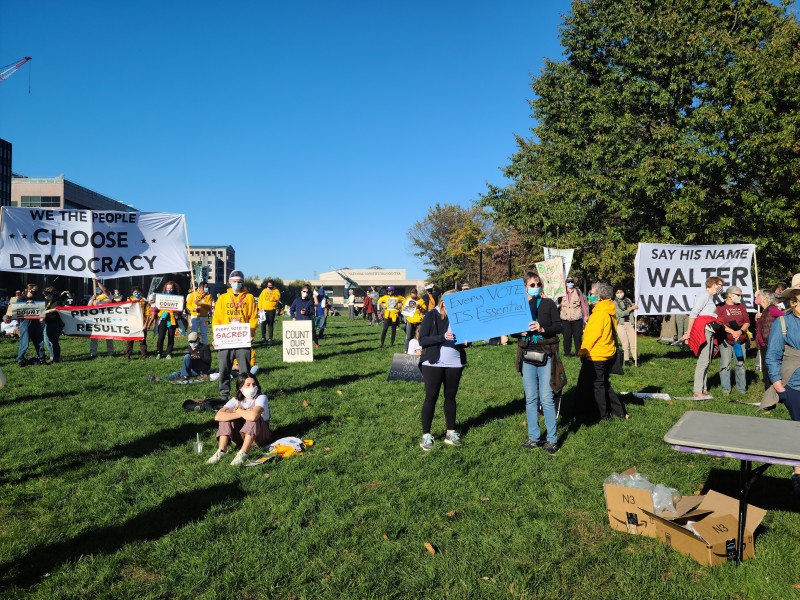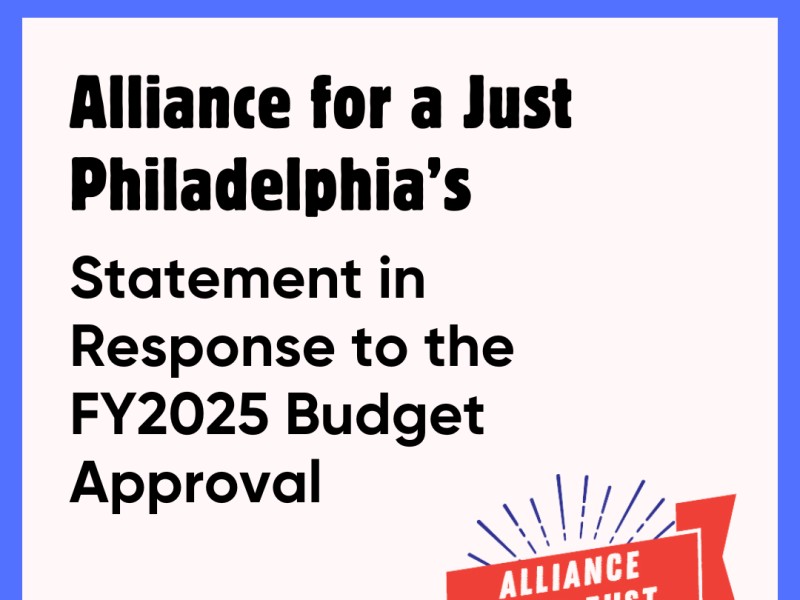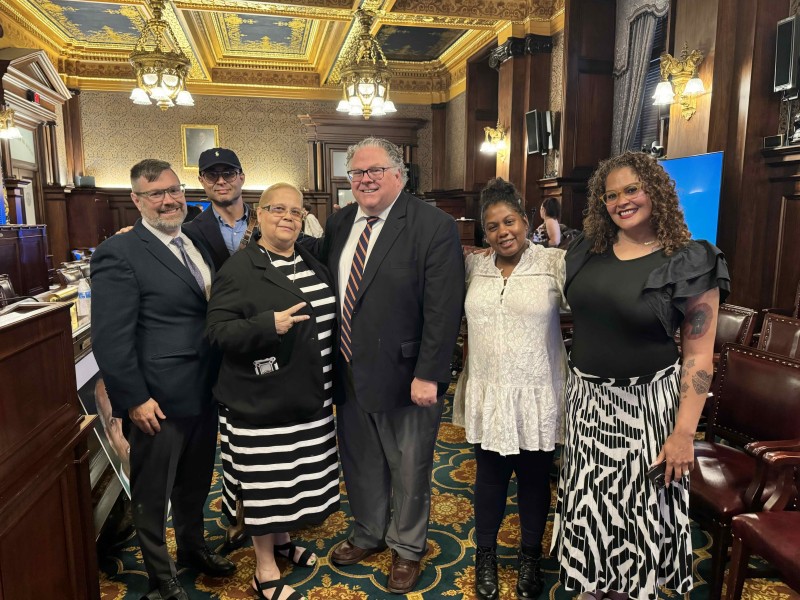Amistad and City Council Members Call for Increased Mobile Crisis Funding
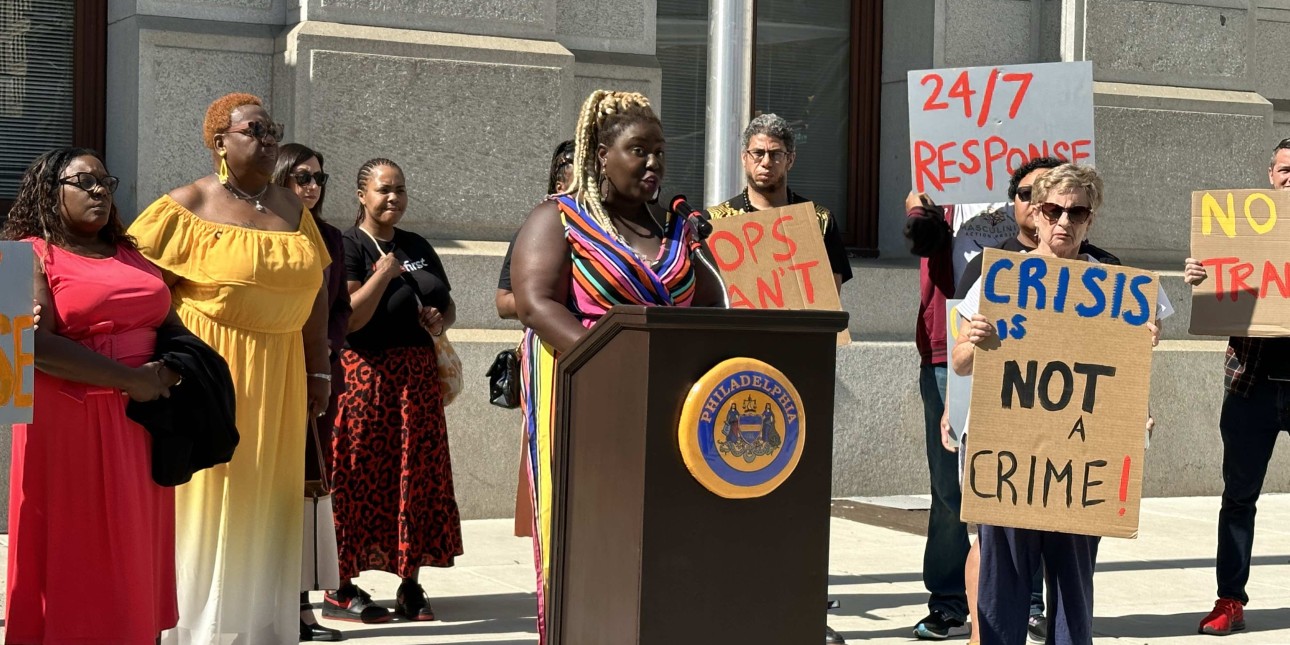
On Thursday, June 1st Amistad Law Project, the Philadelphia Treatment Not Trauma Coalition and a number of members of Philadelphia City Council held a press conference urging the city to prioritize funding mobile crisis response. We called for $3 million in additional funding to reduce wait times, hire and retain staff, and ensure that all mobile crisis teams can operate 24/7. “We will keep fighting for non-police mental health first responders to have everything they need to succeed,” said Amistad Law Project Policy Director Nikki Grant, “because Philadelphians deserve a robust mental health crisis response system, no matter what time of day or night an emergency might arise.”
Since the murder of Walter Wallace Jr in October 2020, our coalition has been fighting to get law enforcement out of the business of responding to mental health crises in Philadelphia. If you are having a medical emergency and call 911, you get an ambulance. If you are in mental health crisis, you should get trained mental health professionals. This ensures people in crisis receive the care they need rather than armed personnel who may escalate the crisis or traumatize the person in need of care. “We don’t send paramedics to put out a fire,” said Councilmember Jamie Gauthier, “and we shouldn't send police to respond to people in mental health crisis.”
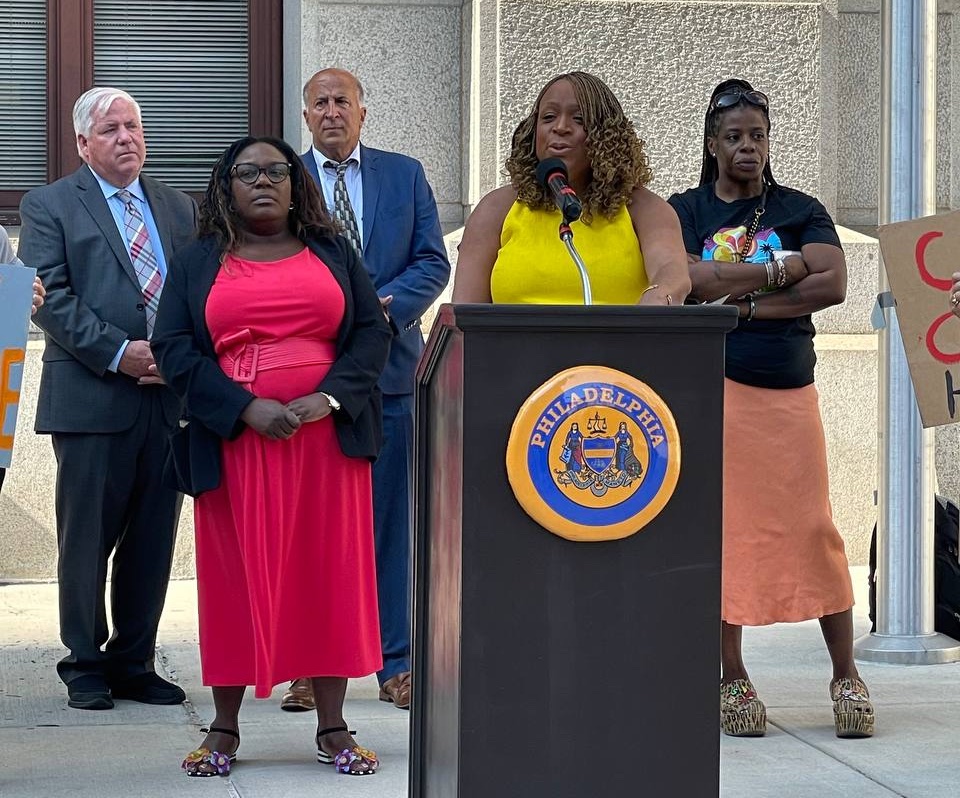
In the years since we started our campaign, Philadelphia has launched a mobile crisis pilot program composed of teams that work to provide such services. A mobile crisis team consists of a licensed mental health professional, a medical professional, and a certified peer specialist, who has lived experience and can relate to families in crisis. In 2021, Philadelphia allocated funding for an over $7 million pilot program run by the Department of Behavioral Health and Disability Services to expand mobile crisis units, and in 2022, after continued advocacy, that number increased to $10 million.
We demanded that mobile crisis teams must be available citywide on a 24/7 basis, and the city expanded from operating only two providers on weekdays during business hours to four providers operating 24/7 on weekdays and part-time on weekends. While these critical changes are a huge improvement over what the city offered before, they are not nearly enough. That’s why we’re calling for additional funding and accountability. Councilmember Kendra Brooks made it completely clear, “Right now, over 200 people a day are reaching out for support with mental health crises. The need for help is outpacing the support our city can offer. We need to allocate $3 million dollars to hire more staff to ensure people who call us receive help, not harm.”
Philadelphia is poised to be a leader in compassionate and transformative services that respond to people in crisis with care, not cops––but we need to set this program up for success. We need $3 million in additional funding to expand this vital service. Additionally, we need the city to commit to a community-led process so that directly impacted individuals and community stakeholders like TNT have more input over the implementation of the mobile crisis program in Philadelphia
Until we have mobile crisis response available in every corner of the city and every hour of the day we will continue to get our people organized and to speak out. Sign up below so you can get involved in the struggle to ensure that we respond to people in crisis with care not cops.
